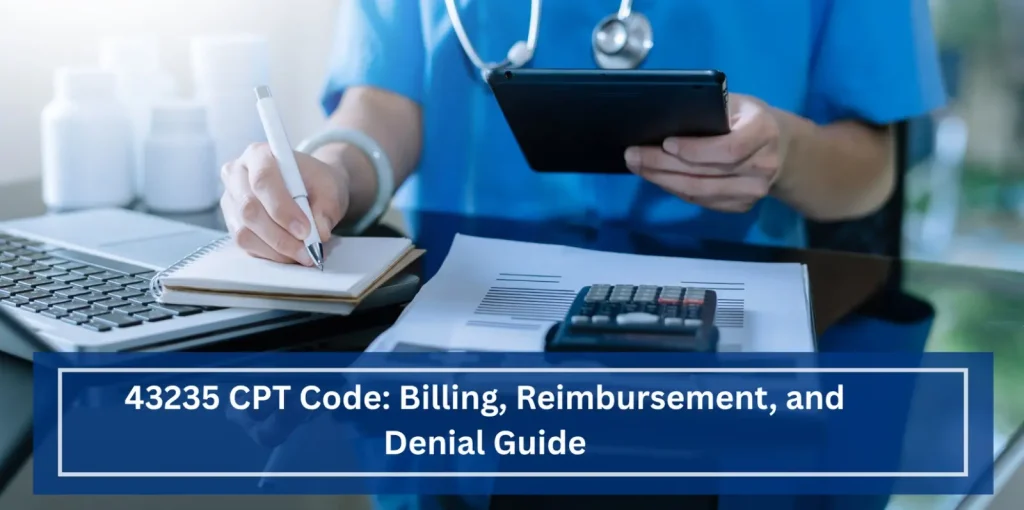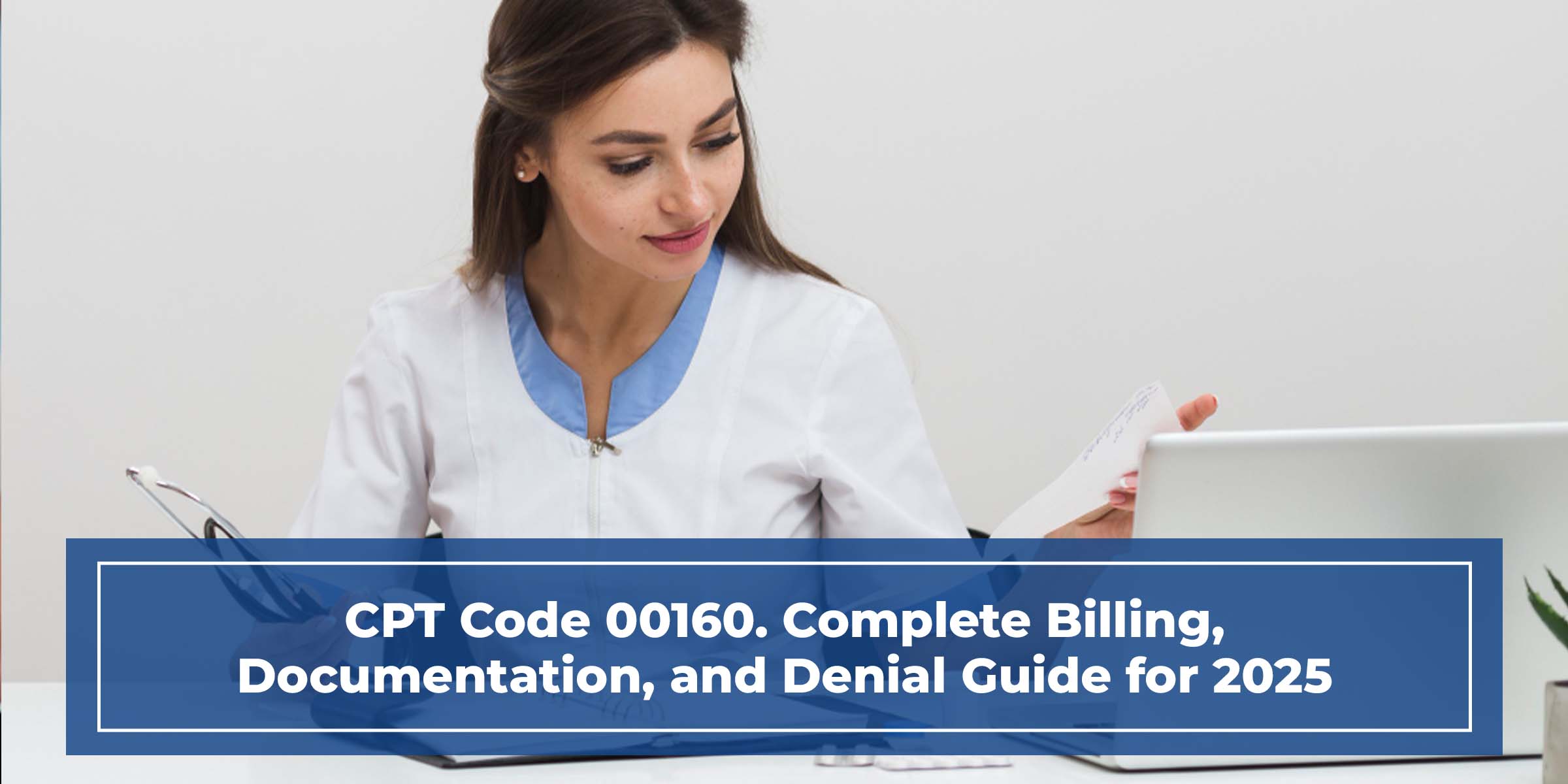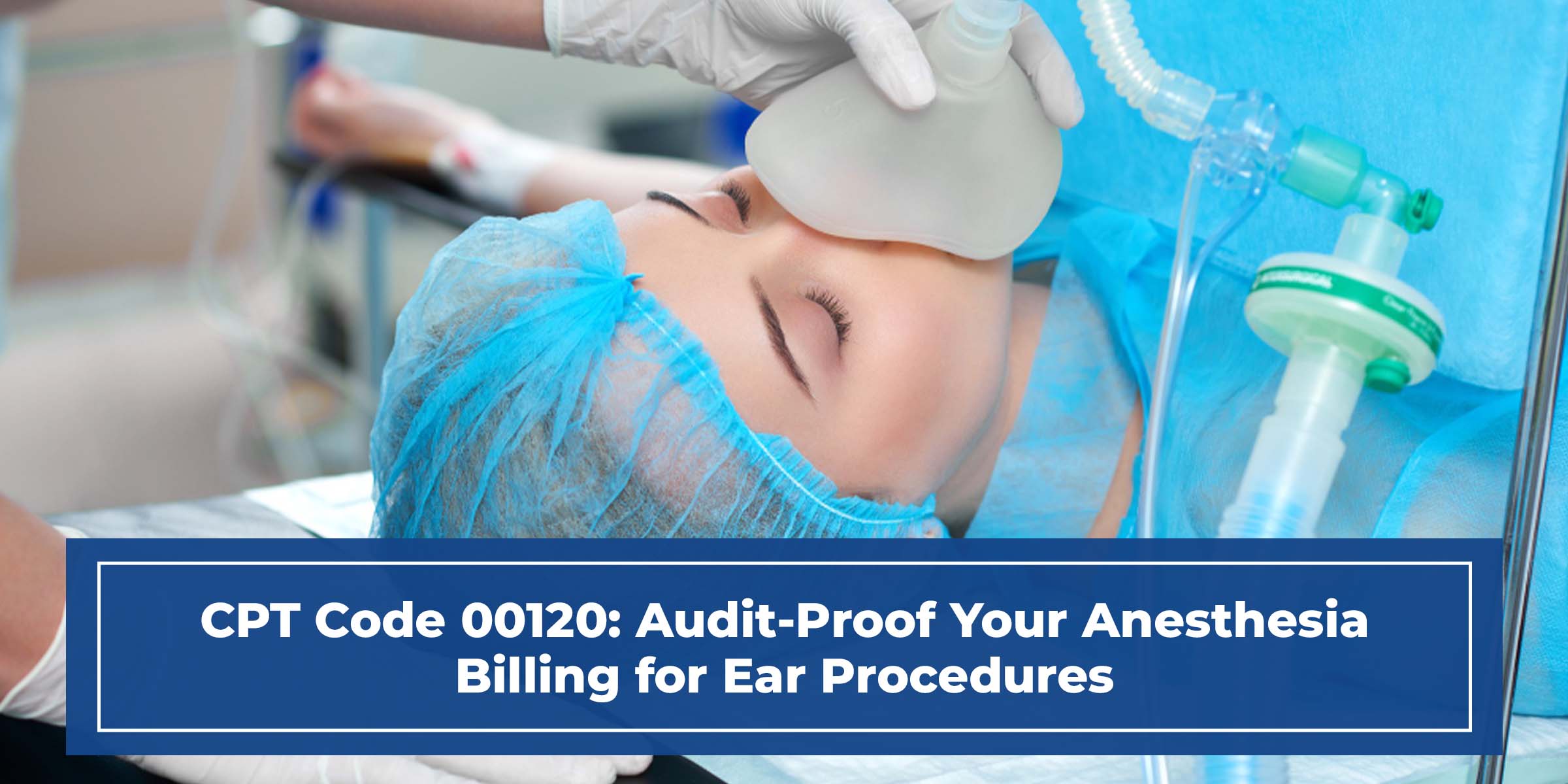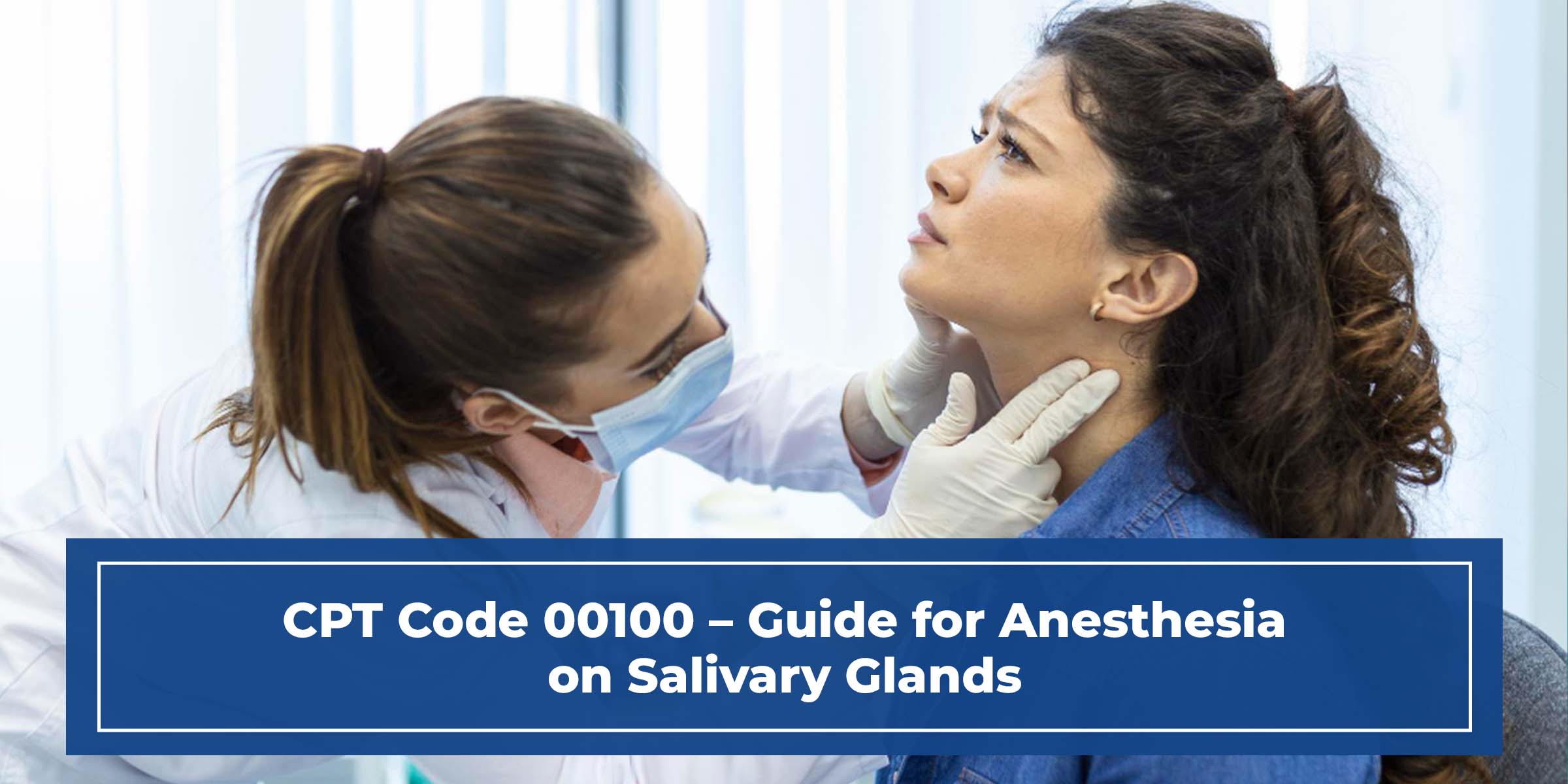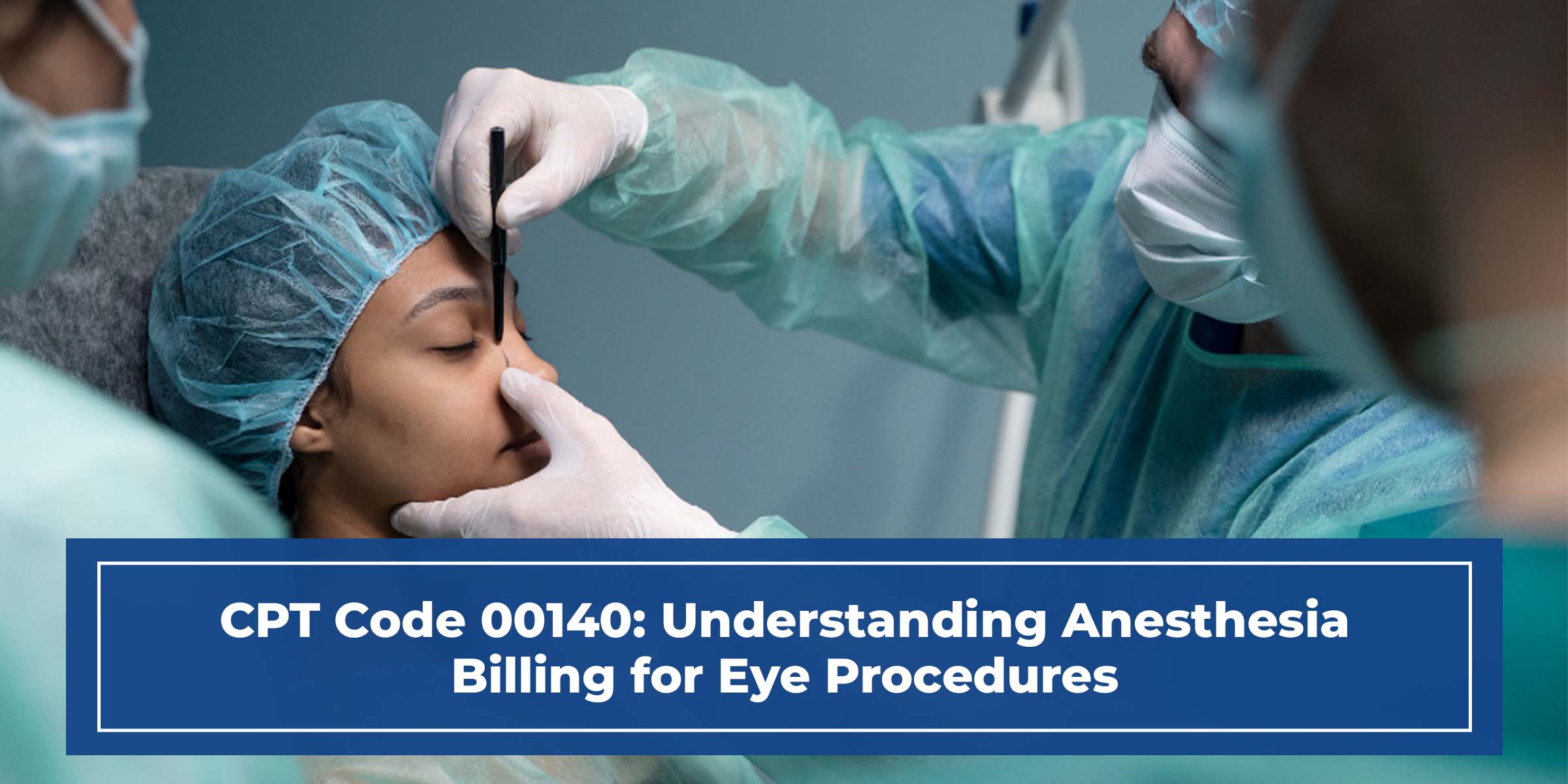Understanding CPT Code 43235 is crucial for ensuring adequate reimbursement and avoiding claim rejections. This code refers to a diagnostic esophagogastroduodenoscopy (EGD) that is conducted without biopsy or intervention. According to Medicare statistics, nearly 500,000 EGD operations were billed using CPT 43235 in 2023 alone, despite claim denial rates remaining above 21%, primarily due to insufficient documentation and incorrect modifier usage. Is your 43235 claim being underpaid, denied, or reported for audit due to confusing or missing documentation?
The 43235 CPT Code is commonly misused due to misunderstandings about process specifics and associated codes. Payers commonly refuse claims when documents do not match the service or when they are incorrectly combined with other EGD services, such as biopsies (43239). According to the Office of Inspector General’s (OIG) 2024 study, one in every four EGD claims submitted to Medicare lacked sufficient evidence to prove medical necessity, placing providers at risk of repayment requests or compliance alerts.
It is necessary to understand whether you’re a GI specialist, certified professional coder (CPC), billing specialist, or health information technician. This blog explains what 43235 entails, how to differentiate it from similar codes, the billing criteria you must follow, and the most typical reasons for denials. Every component is designed for accuracy and problem resolution, equipping you with the information you need to file clean, compliant claims and maintain your revenue cycle.
43235 CPT Code
This section defines and discusses the 43235 CPT code, with an emphasis on what this covers and who should use it.
What It Covers
CPT Code 43235 is used to indicate a diagnostic esophagogastroduodenoscopy (EGD) that was conducted without a biopsy or therapeutic intervention. This treatment includes putting a flexible endoscope into the mouth to inspect the esophagus, stomach, and upper section of the duodenum.
The key components of 43235 are:
- Transoral access.
- Visualization of the upper gastrointestinal tract
- Collect samples via brushing or washing (if conducted)
- There is no biopsy or therapy.
It is frequently used to diagnose unexplained upper GI symptoms such as dysphagia, reflux, abdominal discomfort, GI bleeding, or anemia. If tissue is taken for biopsy, the CPT code 43235 should not be paid; instead, use 43239.
Who Uses It
The 43235 CPT code is used in a wide range of specialties and billing circumstances. It is essential for:
- Gastroenterologists do diagnostic EGDs.
- Medical coders and billers apply CPT codes to outpatient GI claims.
- Insurance claim examiners and auditors
- Health IT teams manage endoscopic documentation workflows.
- Medical billing experts are responsible for compliance and reimbursement.
- Healthcare administrators check that appropriate modifiers (e.g., 52, 59) are used.
EGD without biopsy CPT code
This section explains when to use CPT code 43235 for diagnostic esophagogastroduodenoscopy (EGD) without biopsy and how it varies from other codes.
Clinical Scenario
The CPT code 43235 is used when a diagnostic EGD is conducted without the removal of any tissue. Using a flexible endoscope, doctors may examine the esophagus, stomach, and duodenum. It’s prescribed for symptoms like:
- Upper gastrointestinal hemorrhage.
- Reflux resistant to medicines.
- Dysphagia or dysphagia
- Chronic nausea and vomiting.
- Iron deficiency anemia
Key Differences
It’s important to identify the 43235 CPT Code from other codes within the same EGD family.
| Code | Procedure Description | Tissue Removal | Use Case |
| 43235 | Diagnostic EGD only | No | Visual exam of the GI tract |
| 43239 | EGD with biopsy | Yes | Pathologic examination of mucosal areas |
| 43236 | EGD with submucosal injection | Yes | Injection-based treatment procedures |
| 43238 | EGD with control of bleeding | Yes | Therapeutic intervention |
CPT code 43235 reimbursement
This section describes how Medicare and commercial payers compensate for CPT code 43235. Rates depend on the payer, facility type, and location.
Medicare Rates
The 43235 CPT code falls under the Medicare Physician Fee Schedule (MPFS). According to the CMS 2025 data:
- Facility (e.g., ASC): $123 for patient responsibility.
- Hospital outpatient: $210 patient responsibility.
- Physician reimbursement: $109 nationwide, according to location changes.
The operation is classified as a zero-day global service, which means it only covers the day of the surgery, no pre-op or post-op days. Rejections can happen if documentation is not provided or the relevant modifier is not used.
Commercial Variations
Private insurance may not always match Medicare pricing. Rates for CPT code 43235 reimbursement vary according to:
- Negotiated provider contracts.
- Network status (in/out of network)
- Documentation completeness.
- Medical need.
Providers may receive a range of $200 to $900, depending on the location and payer arrangements. Prior authorization is more usual for commercial programs. The use of modifiers (e.g., 26, 52, 59) might impact processing and approval times.
Difference between 43235 and 43239
This section explains that the CPT code 43235 differs from 43239. Both are linked to EGD procedures, but with different coding and billing requirements.
Table Comparison
The table below compares CPT codes 43235 and 43239, showing their procedural scope and billing consequences.
| Criteria | CPT 43235 | CPT 43239 |
| Description | Diagnostic EGD (no biopsy) | EGD with biopsy |
| Use Case | For unexplained symptoms (e.g., dysphagia) | For visualized lesions requiring tissue analysis |
| Tissue Removal | No | Yes (biopsy performed) |
| Invasiveness | Non-invasive | Invasive |
| Reimbursement Rate | Lower | Higher |
| Complexity of Documentation | Basic | Requires detailed biopsy justification |
| Modifier Use | Limited | Often needs Modifier 59 or 51 |
| Common Denial Reason | Lack of medical necessity | Unbundling with 43235 |
Bundling Rules
CPT code 43239 includes the diagnostic component indicated by 4323; hence, billing both on the same day of treatment is usually prohibited.
- Unbundling 43235 and 43239 may result in claim denials unless the services are provided independently and supported by clinical documentation.
- Modifier 59 is only used when there is a clear procedural distinction, which is unusual in this combination.
- CMS and most private payers adhere to NCCI amendments that prohibit separate compensation for bundled codes unless an exemption is provided.
Conclusion
Understanding the 43235 CPT Code is crucial for correct billing and reimbursement during diagnostic EGD treatments. Misuse or deficiencies in documents can lead to refused claims and compliance difficulties. Differentiating it from comparable codes, such as 43239, helps to decrease unbundling mistakes and revenue loss. Every claim should follow clear medical necessity, accurate modifier usage, and payer-specific billing processes. Providers have to ensure that their billing teams and programmers use this code exactly as specified. Following standardized billing methods for 43235 leads to cleaner claims, fewer audits, and more consistent payment results.
FAQs
What is the 43235 CPT Code used for?
CPT code 43235 is used to report a diagnostic esophagogastroduodenoscopy (EGD) without biopsy or therapeutic intervention.
Can CPT code 43235 be billed as 43239 on the same date?
No, billing both codes together is generally not allowed unless performed separately and supported by distinct documentation with Modifier 59.
What documentation is required for billing CPT 43235?
Medical necessity must be clearly stated. Include procedure notes, findings, and ensure modifier use aligns with payer-specific policies.
How much does Medicare reimburse for CPT 43235?
As of 2025, Medicare pays about $109 to physicians. Patient costs vary depending on the setting, $123 in ASC and $210 in hospital outpatient settings.
What are the common denial reasons for 43235 claims?
Top denial reasons include insufficient documentation, incorrect modifiers, and billing conflicts with codes like 43239 due to unbundling errors.
